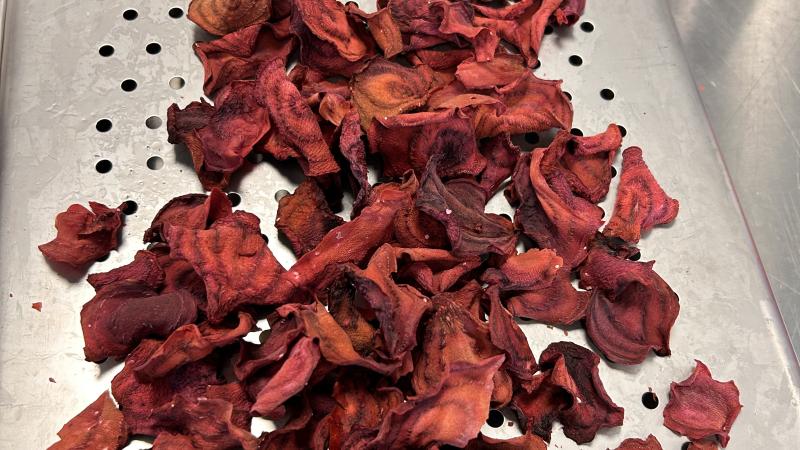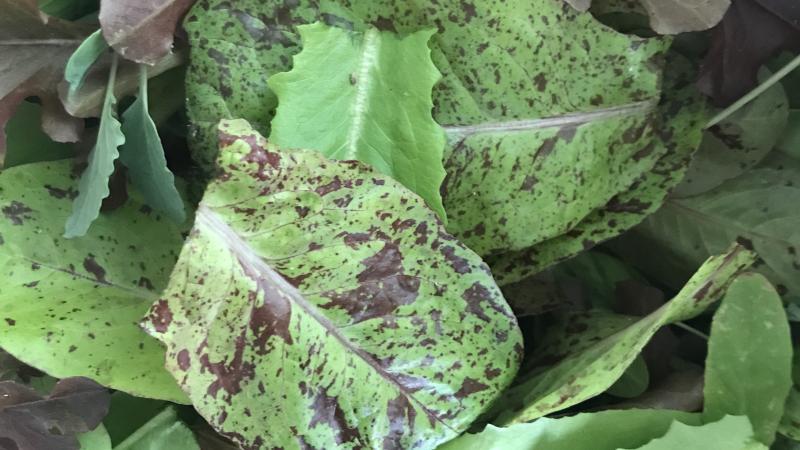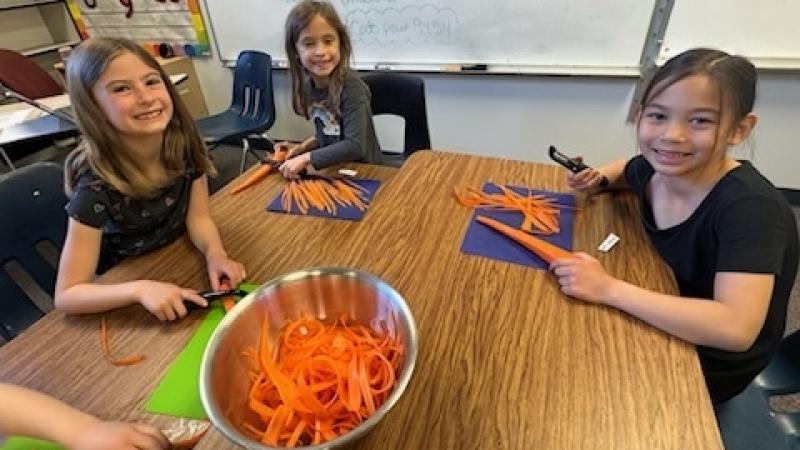Education and access to healthy foods is critical for good health! That’s why St. Peter’s has invested in helping connect groups across our community to opportunities for nutrition education and access to local, healthy foods through the Montana Harvest of the Month Program.
Our Harvest of the Month Community Coordinator Kim Lloyd uses Harvest of the Month to:
- Coordinate lessons and taste tests taught by Carroll College and high school students in Helena and East Helena elementary classrooms as well as Head Start and Pete's Place preschools
- Lead garden and nutrition-education booths at local farmer's markets and health fairs
- Share food and recipes through monthly Charlie Cart demonstrations featuring locally grown, nutritious foods available at Helena Food Share
To learn more or inquire about educational opportunities, contact Kim Lloyd at kblloyd@sphealth.org or (406) 457-4166.
Monthly resources
Virtual Field Trips: Grains | Beef | Dairy
| January: Winter Squash | February: Beets | March: Grains |
|---|---|---|
Winter squash are loaded with vitamins A and C and provide approximately the same amount of potassium as bananas
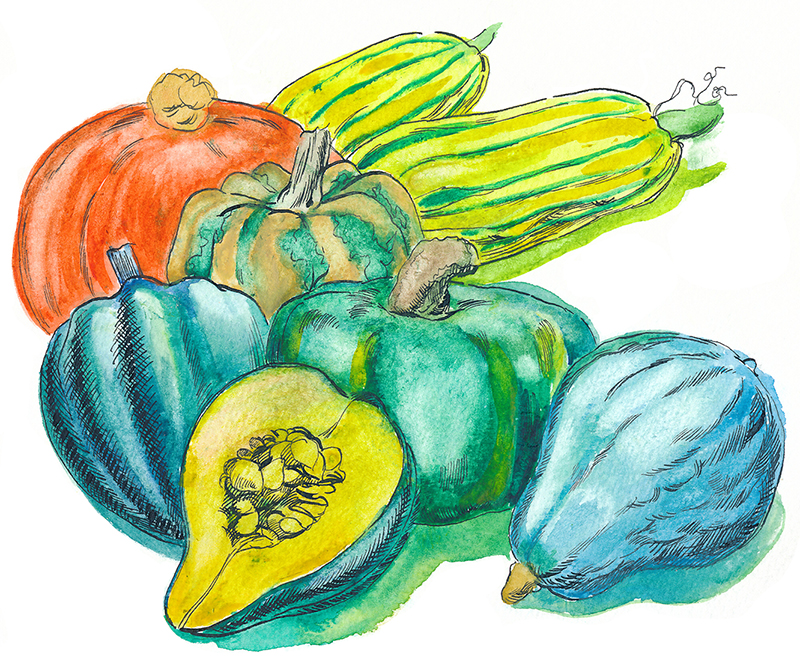 | Nitrates improve oxygen blood flow, and energy use during exercise.
 | Soluble fiber in WHOLE grains can reduce the risk of heart disease.
 |
| April: Beef and Bison | May: Chickpeas | June: Leafy Greens |
|---|---|---|
Both are high in protein which helps to build and repair muscles.
 | 65-75% of chickpea fiber is insoluble, great for digestion and colon health.  | Most greens provide vitamin K, which helps the body heal cuts and scrapes.  |
| July: Summer Squash | August: Cherries | September: Herbs |
|---|---|---|
Summer squash are a good source of vitamin C and potassium and contain manganese and vitamin B6.
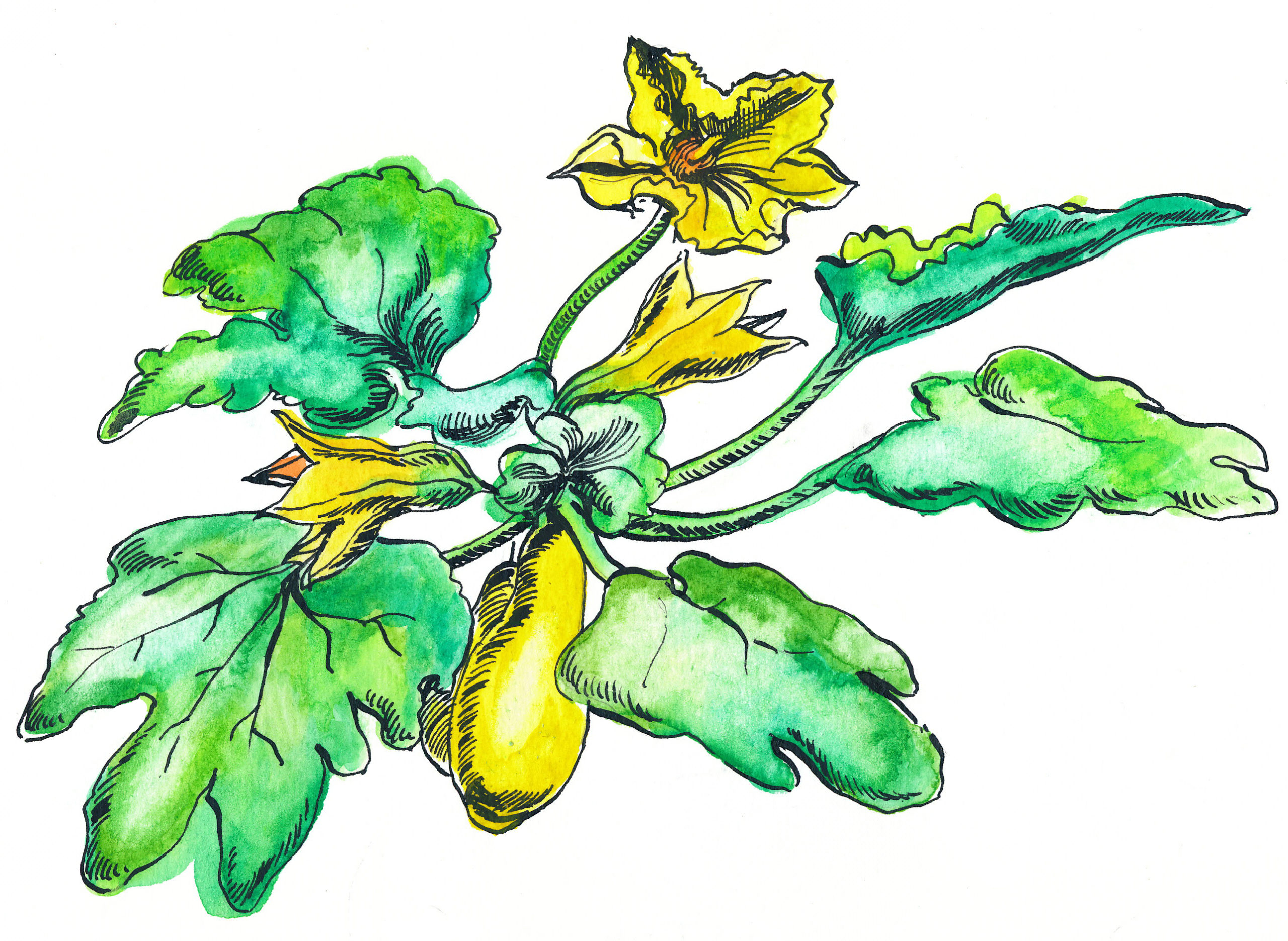 | One cup of cherries contains more potassium than a banana.
 | Herbs contain vitamins, have anti-inflammatory properties, and are rich in antioxidants.  |
| October: Apples | November: Carrots | December: Lentils |
|---|---|---|
Apples contain quercetin: an antioxidant that has anti-inflammatory, anti-viral, and anti-depressive effects.  | Vitamin A promotes good vision, Vitamin C promotes a healthy immune system.  | Lentils are a good source of non-heme iron. Eat with vitamin C to enhance iron absorption.  |


